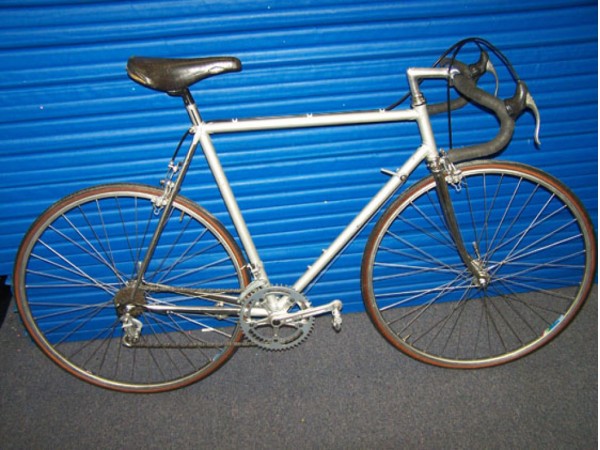An ordinance prohibiting outdoor bicycle assembly is on track to pass at the Board of Supervisors, and it could lead to penalizing homeless people and seizure of their bicycles, according to homeless advocates.
The board’s Land Use and Transportation Committee sent it to the full board on July 10 on a 2–1 vote. If it passes there, the ordinance would outlaw open-air “chop shops” where bicycles are put together and sold. The proposal, authored by District 8 Supervisor Jeff Sheehy, defines “chop shops” as operations on public streets with five or more bicycles or five or more bicycle parts, among other provisions.
The panel heard opposing views from members of the San Francisco Bicycle Coalition, Democratic Socialists of America and the Coalition on Homelessness, which publishes the Street Sheet.
Opponents criticized the measure as an ineffective way to combat bike theft while targeting unhoused people who rely on their bicycles for either transportation or are engaged in bicycle recycling for police scrutiny. There are many homeless people who engage in bicycle recycling, using donated bikes and bike parts for rebuilding and resale, and who offer repair services as an honest way to carve out a living in an unfriendly job market.
The ordinance comes at a time when San Francisco grapples with sprouting encampments throughout the city. The section that empowers police to give an “administrative” ticket to people, impound bicycles without probably cause and charge impound fees struck opponents as not only unfair to homeless people, but in violation of the Fourth Amendment.
Coalition on Homelessness organizer Dayton Andrews told the panel that the ordinance’s definition of a chop shop “is the definition of any bicycle owner’s garage.”
Under the ordinance, people with impounded bicycles can retrieve them if they can prove some proof of ownership, such as a registration or serial number, or sign an affidavit within 15 days. But the Coalition on Homelessness said in a policy analysis that homeless people often lose documents and identification when living on the streets, and will likely be unable to navigate the process.
James West, a homeless person who helped build Box City units as part of the Saint Francis Homelessness Challenge, recalled an incident where providing such proof didn’t deter cops from impoundment.
“I heard they (police) run the bikes through and they took it anyway, at the same time it wasn’t reported stolen,” he said.
Justin Joshua Hyche, an intern at the Coalition on Homelessness, told the panel, “I oppose this potential ordinance because it would give the police more authority to abuse their power and assume anyone is a thief.”
Supervisor Aaron Peskin, who dissented in the committee vote, took a different approach in his opposition. He said that he inquired police — but got no reply — on whether they have a place to store confiscated bikes and the staff to watch them. He also pointed out that bicycle theft is already against the law, with “organized elements” operating theft rings.
“The question is do we have the police’s will to enforce the tools we already have in our books,” he said. But Peskin also alluded to the ordinance’s impact on homeless people.
“This legislation only deals with it as an outside phenomenon, not an inside phenomenon,” he said.
Using data from the city’s 311 telephone system, Sheehy pointed out that over 700 calls were made to report stolen bikes, with most of the incidents reported to the police station serving his district.
The full board is scheduled to vote on the ordinance on July 18.


